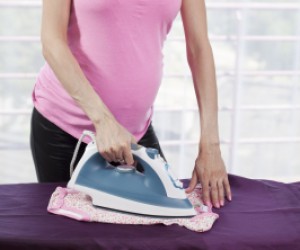Two in five South Africans believe women should stay at home, rather than working outside the home. This according to consumer insights company Pondering Panda, who interviewed 3 075 adults between the ages of 18 and 49, across South Africa, to gauge opinion on common gender stereotypes.
The survey found that, when asked their opinion about the common stereotype ‘a woman’s place is in the kitchen’, 41% of respondents agreed that women should remain at home. In comparison, 56% believed that women should play the same role as men, and 3% did not have an opinion.
Reaction to this stereotype differed according to age. Younger respondents were significantly less likely to feel that a woman’s place was in the home. A third of 18 to 34 year olds (34%) felt this way, compared to more than half (54%) of 40 to 49 year olds. Women were also less likely to hold this opinion than men. 34% of female respondents agreed with the stereotype, compared to 48% of males. There was no significant difference of opinion among race groups.
In contrast to this view, a woman’s position in the household was seen as being close to that of a man’s. When asked whether they thought it was important that a man, and not a woman, was the head of a family, 47% of respondents felt that a woman could also be the head of a household. In comparison, 51% believed it was important that it was a man who was the head of a household.
Women were more likely than men to feel that a woman could lead a family, but not by a substantial margin. 51% of female respondents felt that a woman could also be the head of a family, compared to 43% of men. Among race groups, black and coloured respondents were less likely than whites to feel that a woman could also be the head of a household. 45% and 47% of black and coloured respondents, respectively, believed a woman could be head of household, compared to 58% of whites. There were no significant differences of opinion among age groups.
Shirley Eadie, spokesperson for Pondering Panda, said, “We still have a long way to go when it comes to finding equality for women in South Africa, and this study offers insight into the traditional mindset of many South Africans, balanced by hope for the future. The idea that women should stay home is a vestige of an older, patriarchal society and is not in keeping with our modern values which encourage women to participate in the workforce. With more than 40% of adults still clinging to an outdated mindset, it’s a perception we need to combat at all levels of society.
However, there is hope in our findings for a woman’s position in the family. With close to half of South Africans supportive of the idea that a woman can also be the head of a family, these results show that women are gaining ground in this regard. This Women’s Day, our contribution to celebrating women and their role in our society is to recognise the many challenges they still face, and play our part in changing ideas and encouraging greater equality.”
Interviews were carried out both on cellphones and online between the 23rd and the 28th of July, across South Africa, excluding deep rural areas. Responses were weighted to be nationally representative in terms of age, gender and race. Pondering Panda conducts surveys via a variety of digital media, including the Mxit social network and Panel Services Africa’s (PSA) online panel. PSA uses responsive surveys (accessible via mobile phones, computers and tablets) to conduct interviews with their panel and respondents are incentivised for each survey they complete.
On Mxit, interviews are conducted through an interactive app on mobile phones. The app is available for both feature phones and smartphones, and is accessible on more than 3000 different mobile handsets. Respondents opt-in to surveys voluntarily and are not incentivised.
Johan van der Merwe






